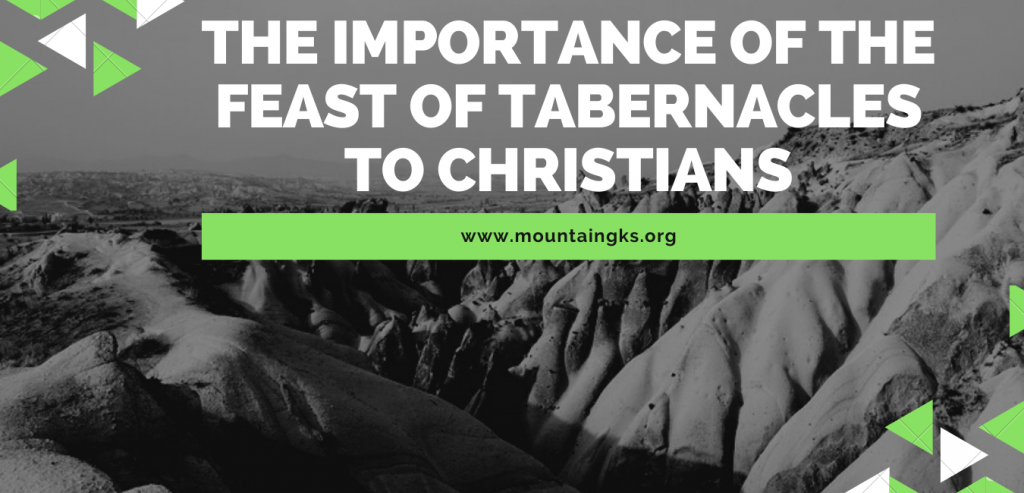The Feast of Tabernacles is an eight day festival which God Almighty directed the Jews to observe as a memorial of their days of sojourning in the wilderness. It was celebrated from the 15th day of the Jewish seventh month, during which time they dwelt in booths or temporary shelters. It was a time for thanksgiving and spiritual reawakening through the reading of the law of God to the people, the giving of gifts and offerings and the holding of public processions in demonstration of their faith in God Almighty as the Owner and Sustainer of His people, Israel. – Leviticus 23:33-43; Deuteronomy 16:13-17; Exodus 34:22.
In Deuteronomy 31:10-13, the command is given that during the Feast of Tabernacles, young and old, male and female, even strangers, should assemble to hear the laws of God so that they may learn to fear Him all the days of their lives. When the Jews returned from Babylonish captivity they celebrated the Feast with renewed zest that had not been seen since the days of Joshua, the son of Nun. – Nehemiah 8:8, 14-18.
Our Lord Jesus Christ, “the greater and more perfect tabernacle” of God, (Hebrews 9:11; Revelation 21:3) took active part in the celebration of the Feast of Tabernacles during his earthly sojourn and even taught the people on that occasion, to the wonder and admiration of people of goodwill, as it is written: “Now about the midst of the feast Jesus went up into the temple, and taught. And the Jews marvelled, saying, How knoweth this man letters, having never learned? Jesus answered them, and said, My doctrine is not mine, but his that sent me.” (John 7:14-16) “In the last day, that great day of the feast, Jesus stood and cried, saying, If any man thirst, let him come unto me, and drink. He that believeth on me, as the scripture hath said, out of his belly shall flow rivers of living water.” (John 7:37-38) By participating actively in the Feast, our Saviour set an example for Christians to follow. The importance – significance, value or relevance of the Feast to Christians is therefore readily evident. – John 13:15; 1 Peter 2:21.
Then there is the prophetic command that “the people of Egypt”, meaning all people who had, in ignorance, been walking against the interests of God and His Kingdom or Organization, (symbolized as Jerusalem in the text), should keep the Feast of Tabernacles and that if they do not, they would not have rain, meaning blessings. – Zechariah 14:16-19; Revelation 11:8; Galatians 4:26; Ezekiel 34:26.
It is important to point out that the celebration of the Feast today is antitypical , as we now follow the spirit and not the letters of the law. For instance we no longer need to make animal sacrifices as Jesus Christ has made the ransom sacrifice once for all. (John 1:29; Hebrews 10:8-10) We also do not keep the Feast in the seventh month because of weather conditions in this part of the world. When we celebrate the Feast with sincere minds and do as is required of us, God’s “showers of blessings”, will be ours by God’s grace. “Therefore let us keep the feast, not with old leaven, neither with the leaven of malice and wickedness; but with the unleavened bread of sincerity and truth.” – 1 Corinthians 5:8; Ezekiel 34:26.

